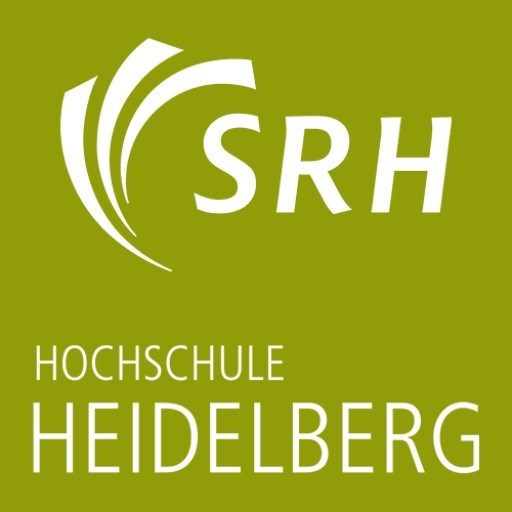Photos of university / #tu_berlin
Building Sustainability — Management Methods for Energy Efficiency at Technische Universität Berlin is an advanced interdisciplinary master’s programme designed to prepare students for leadership roles in sustainable building management. This innovative programme focuses on the development and implementation of energy-efficient solutions within the building sector, integrating principles from engineering, architecture, environmental sciences, and management. Students will explore contemporary topics such as sustainable building design, energy systems optimization, renewable energy integration, indoor environmental quality, and smart building technologies. The curriculum emphasizes both theoretical foundations and practical applications, enabling graduates to address complex challenges related to reducing energy consumption and minimizing environmental impact in urban development and building operation.
The programme aims to foster a comprehensive understanding of the technical, economic, and ecological aspects of building sustainability. Students will engage in cutting-edge research projects, case studies, and real-world problem-solving exercises supervised by leading experts in the field. Courses include topics like energy management systems, innovative insulation methods, sustainable material use, building automation, and policy frameworks supporting green building practices. Additionally, the programme encourages teamwork, critical thinking, and communication skills necessary for effective leadership in multidisciplinary environments.
Graduates of this programme will be equipped to work in various sectors, including consulting firms, construction companies, public authorities, and research institutions, focusing on improving energy efficiency in existing and new buildings. They will be prepared to implement innovative strategies that comply with regulatory standards and contribute to climate change mitigation efforts. The programme also offers opportunities for networking with industry professionals, participating in internships, and attending international conferences. Overall, Building Sustainability — Management Methods for Energy Efficiency at TU Berlin aims to cultivate highly qualified experts dedicated to advancing sustainable building practices worldwide, shaping a greener, more energy-efficient future.
Educational organisation
First semester:- Energy Performance of Buildings (9 cr)
- Project Management (9 cr)
- Introduction Project (6cr)
- Lecture series "Building and Urban Area Structures: Modifications for Sustainability and Energy Management" (6 cr)
Second semester:
- Real Estate Economics (6 cr)
- Energy-Efficient Societies (6 cr)
- Interdisciplinary Project (9 cr)
- Compulsory elective: Integration of Renewable Energies (6 cr) OR Innovation and Technology Management, part I (6 cr)
Third semester:
- Life Cycle Management (6 cr)
- Compulsory elective: Smart Buildings (6 cr) OR Innovation and Technology Management, part II (6 cr)
- Master's thesis (18 cr)
Excursions and company visits may be part of the courses.
Lectures will usually take place during two full-time weekdays; accompanying tutorials might be held on a third weekday. Lectures and seminars take place at the EUREF Campus in Berlin Schöneberg.
Forms of assessment
Written exam, oral exam, individual and group presentation, written project reportCourse objectives
The Master's programme in Building Sustainability offers young engineers, architects, economists and planning scholars from universities, enterprises, planning offices and public authorities the opportunity to gain interdisciplinary specialist knowledge. The programme enhances their professional skills in the area of sustainable and energy-efficient building management while taking into account the urban context of buildings, thus preparing them for specific challenges resulting from urban development and climate change. After completing the programme, graduates will be able to understand and moderate different stakeholders of a large-scale project.Language requirements
Applicants must provide proof of their English skills: level B2 (or higher) of the Common European Framework of Reference for Languages (CEFR) (not required in the case of high school graduation from a school with English as its primary language).Academic requirements
Applicants must have successfully completed a programme of studies preferably in civil / construction / industrial engineering, building technology, urban planning, or architecture, and must have accrued professional experience for at least one year.All applicants must submit a written application which presents their educational and professional background as well as their reasons for wanting to pursue the programme of study. Applicants should have professional experience, preferably in the field of building or project planning or management (technical, architectural, urban), real estate, energy economy, or environmental or sustainability management.
Enrolment fees
Enrolment fees apply. However, these fees are included in the tuition fees stated above. This includes a semester ticket covering public transport in the Berlin metropolitan area.Costs of living
In order to cover their living expenses (room and board, health insurance, books, personal costs) for the study period in Berlin, we recommend that participants budget approx. 500 EUR per month.Job opportunities
Because the full-day class lectures take place only two to three days per week, professional activities may be pursued to a limited extent, such as in firms and companies at the EUREF Campus.The Career Service at Technische Universität Berlin offers a wide array of services for students seeking employment during their studies in Berlin as well as after completion of their degree programme.







